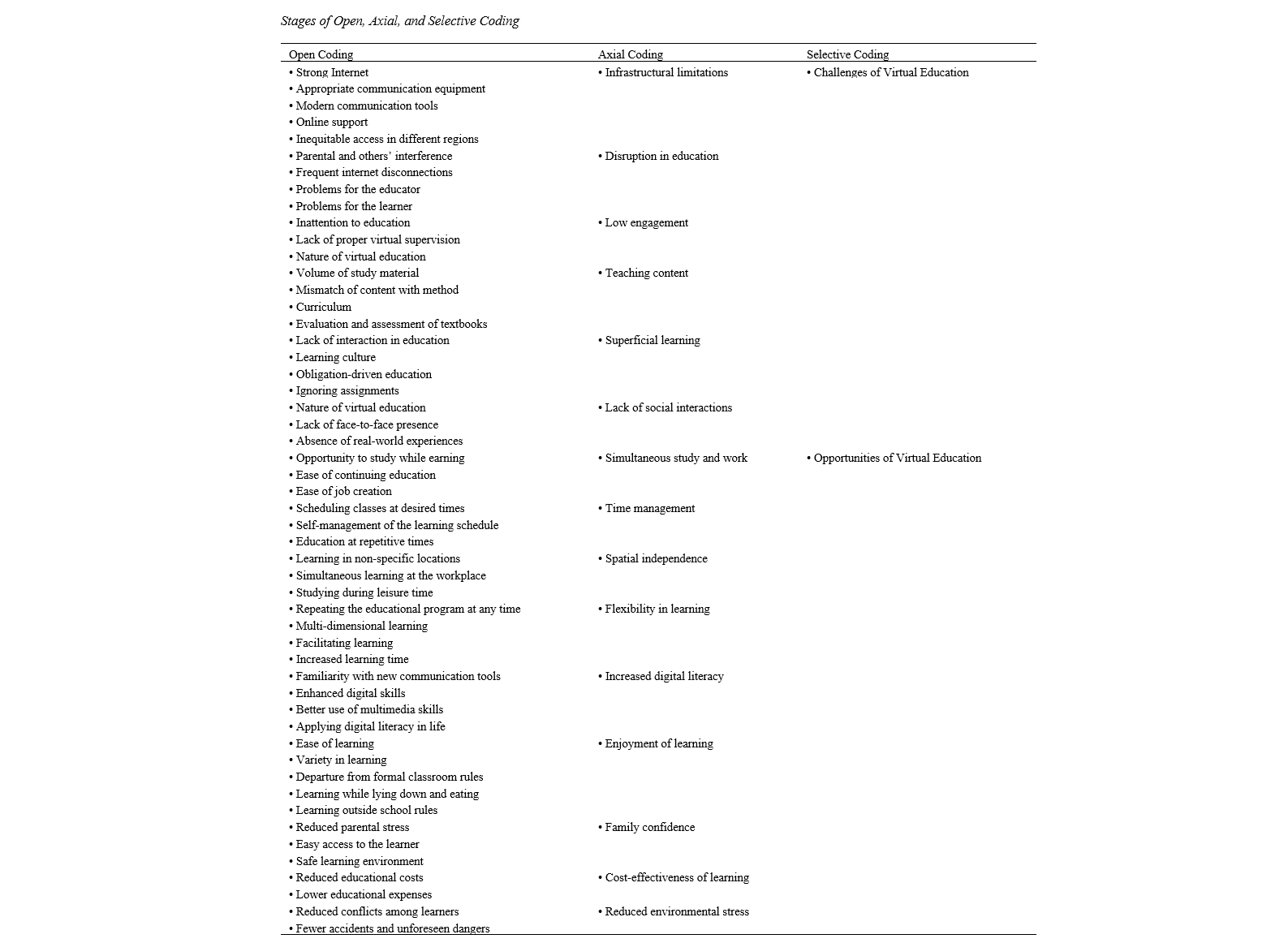Identifying Challenges and Opportunities of Virtual Education from the Perspective of Experts
Keywords:
Education and Learning, Virtual Education, Education, Opportunities, ChallengesAbstract
Objective: The need for changing educational methods and increasing the use of technology in education is increasingly felt every day. The purpose of this study was to identify the challenges and opportunities of virtual education in the country.
Methodology: This research employed a qualitative method (thematic analysis) and was applied in terms of its objective. The participant community in the study was selected based on specific criteria such as expertise, relevant publications, academic and non-academic experiences, etc. Thus, by reviewing the works of the expert community, 12 experts in the field of e-learning were identified as the research sample through purposeful sampling. The research instrument was semi-structured interviews, and the findings were validated and tested for reliability. Data analysis was conducted using thematic analysis with coding.
Findings: The findings revealed 52 open codes, 16 axial codes, and 2 selective codes for the challenges and opportunities of virtual education identified by the experts. Challenges included (infrastructural limitations, disruption in education, low engagement, teaching content, superficial learning, and lack of social interactions), and opportunities included (simultaneous study and work, time management, spatial independence, learning flexibility, increased digital literacy, enjoyment of learning, family confidence, cost-effectiveness of learning, and reduction of environmental stress).
Conclusion: It can be concluded that virtual education is an educational method that, like in-person education, has its advantages and disadvantages. Therefore, educational authorities can maximize benefits by strengthening opportunities and reducing challenges, especially when in-person education is not feasible.
Downloads

Downloads
Additional Files
Published
Issue
Section
License
Copyright (c) 2024 Atefeh Khosravi Rad (Author); Kazem Delghandi (Corresponding Author); Mohammad Delghandi, Motahare Khosravi Rad (Author)

This work is licensed under a Creative Commons Attribution-NonCommercial 4.0 International License.















